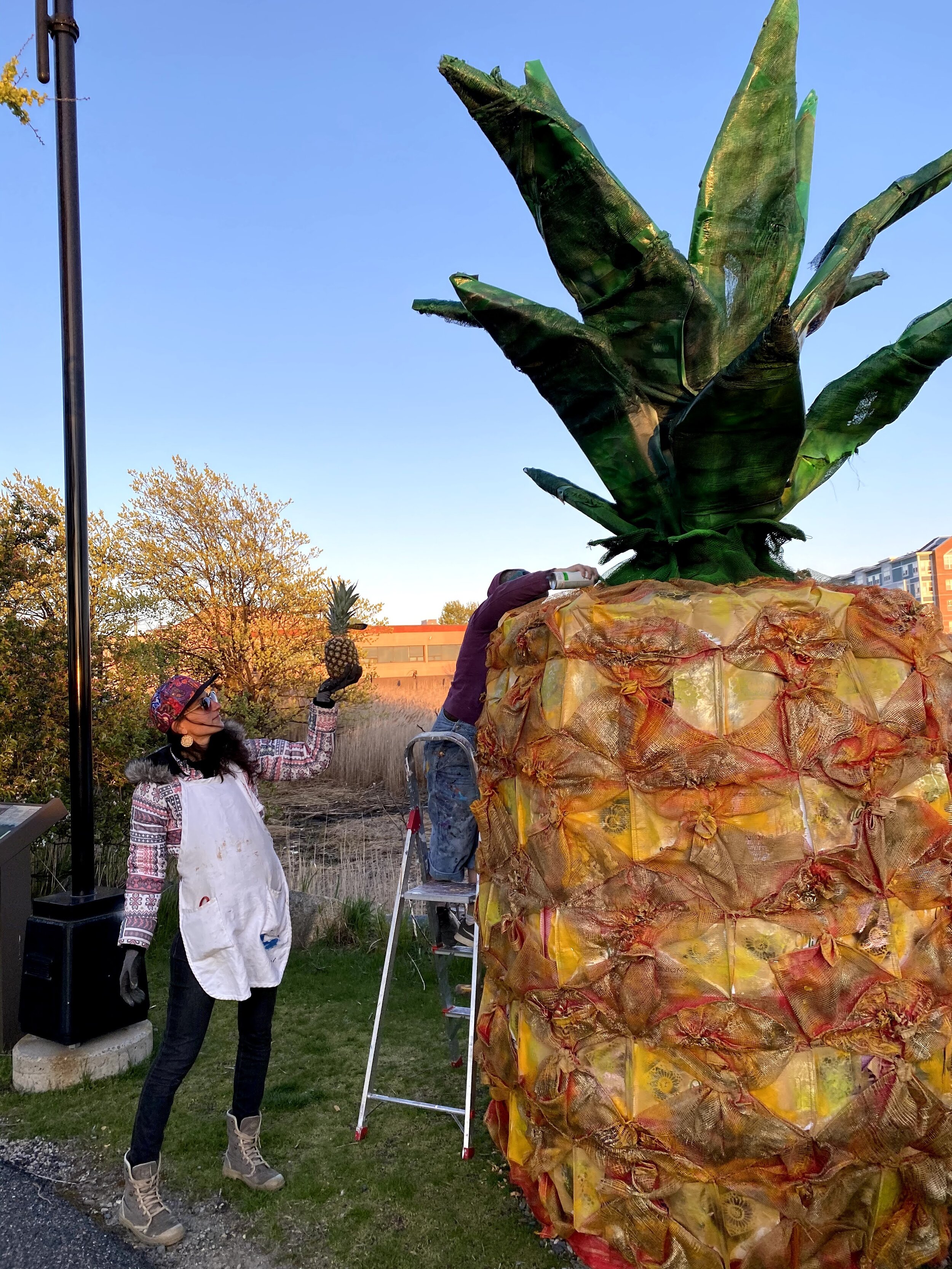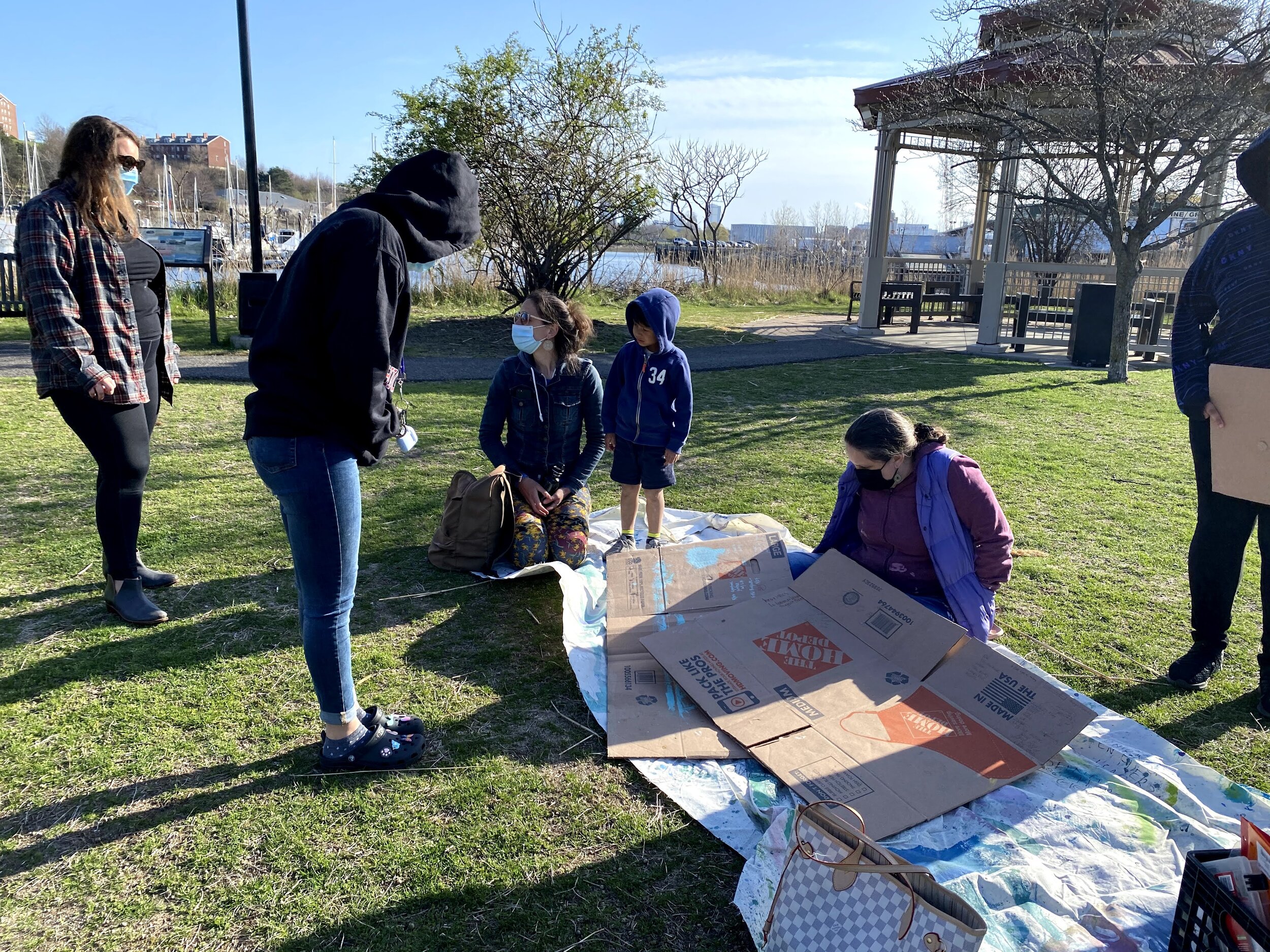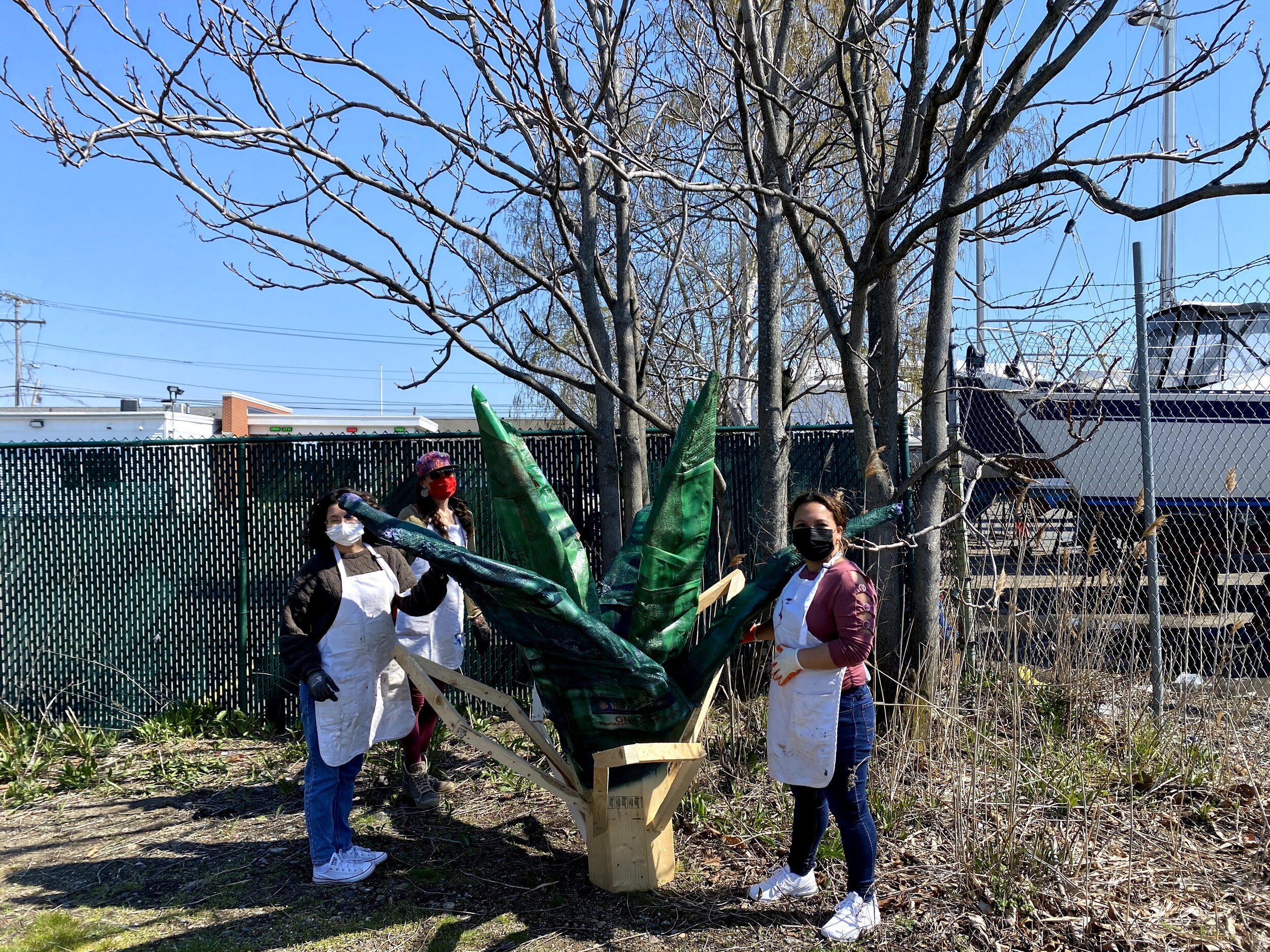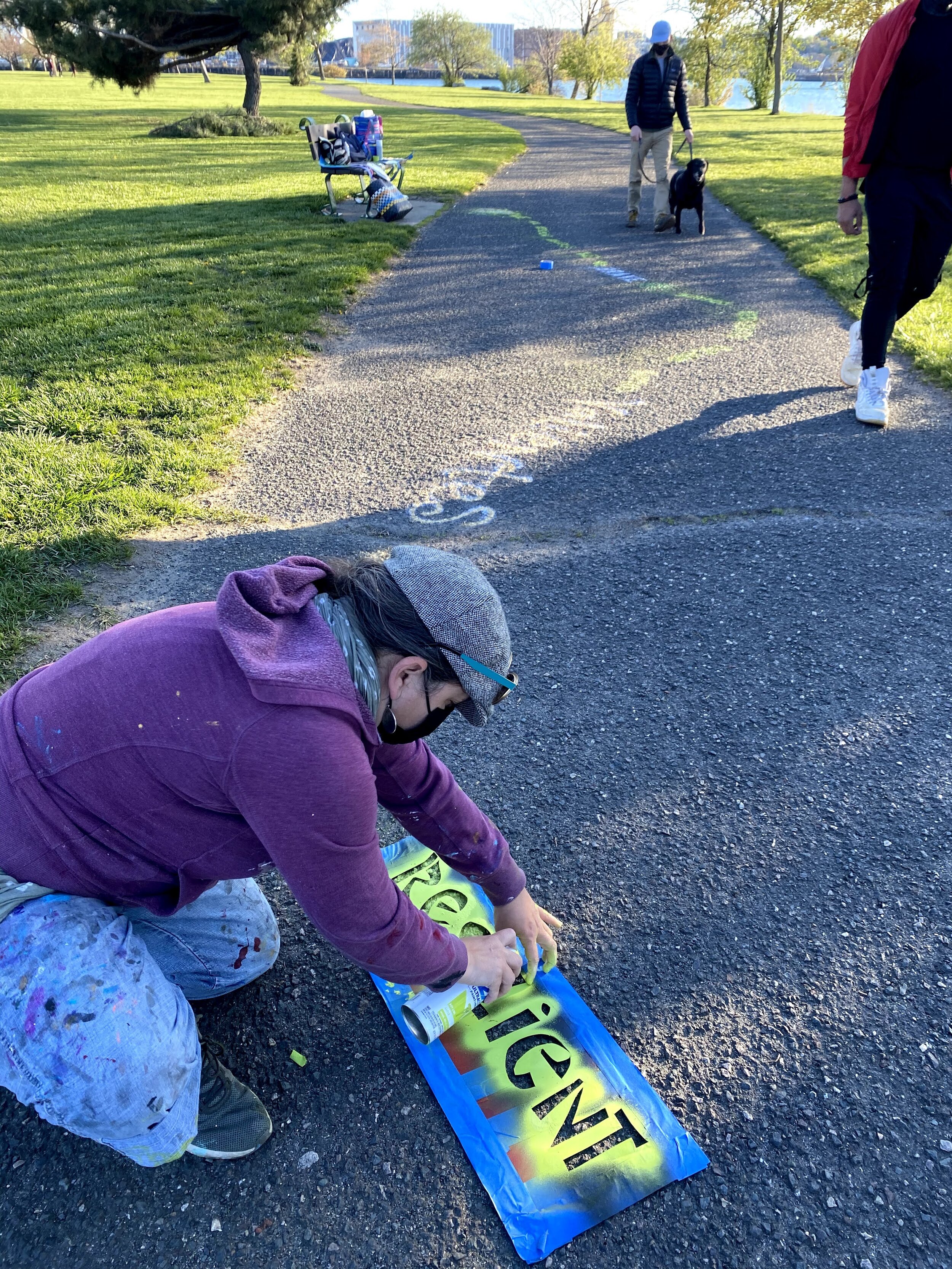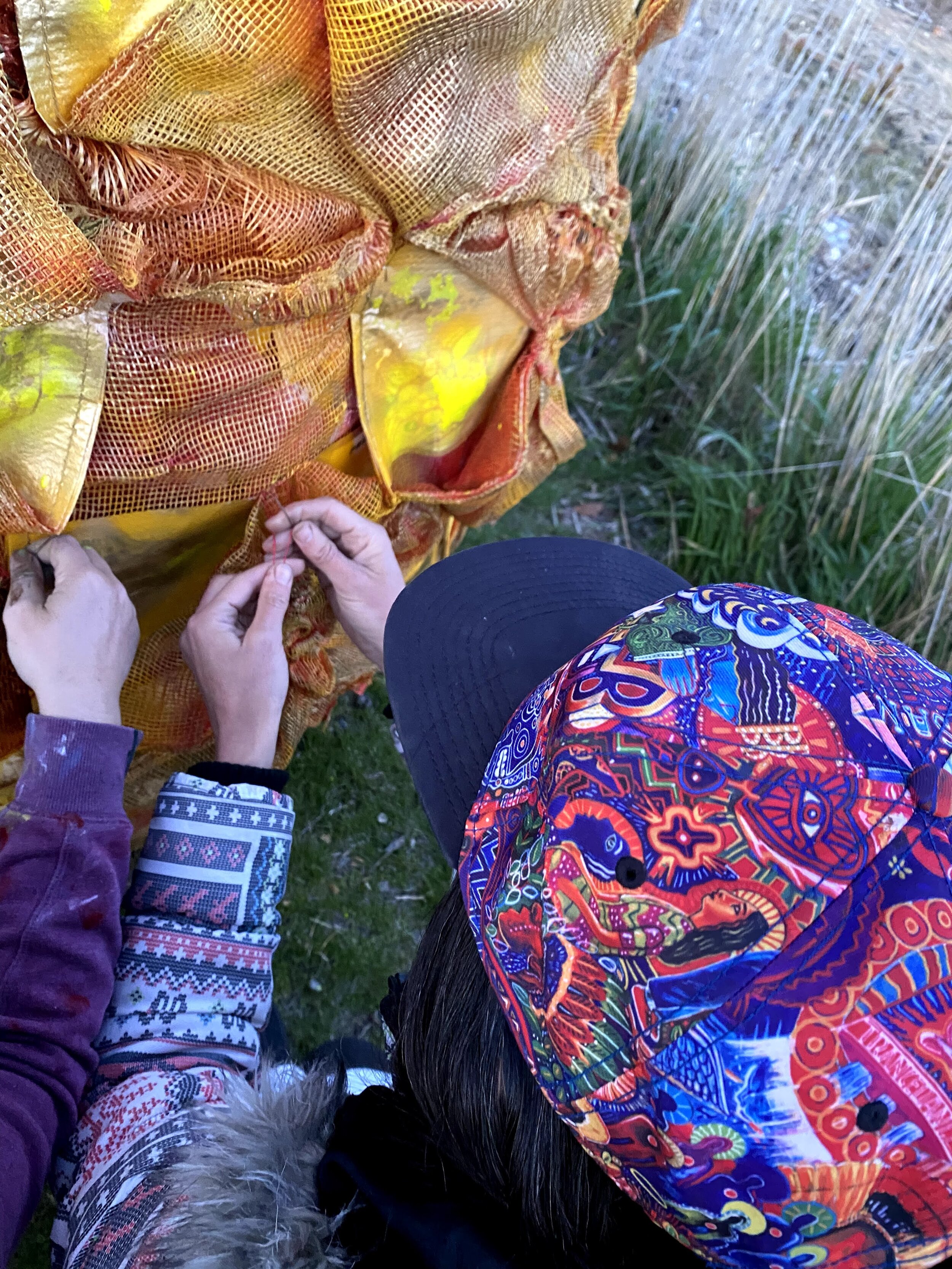The Island End River is a small tidal tributary off of the Mystic River close to where it empties into the Boston Harbor. At its terminus sits the New England Produce Center, an essential part of the surrounding region’s food distribution infrastructure. This low-lying area built atop a salt marsh and tidal floodplain is extremely vulnerable to flooding, and it was identified as a priority area in the City of Chelsea’s 2018 Municipal Vulnerability Plan. As the City of Chelsea works to address coastal flooding through a redesign and improvement of the Island End River Park, the City is also focused on providing equitable waterfront access to its diverse communities, placemaking and enhancing the natural shoreline. Fruitful Resilience is intended to lift up resilience efforts that have been spearheaded by the Cities of Chelsea and Everett, as well as nonprofit organizations Mystic River Watershed Association and GreenRoots.
As part of this effort, the City has been working with Lead Artist Carolyn Lewenberg, and local artists Ruth Henry and Eileen Riestra and six youth from the La Colaborativa. The team recently completed a giant pineapple sculpture at Island End Park, using absurdity to get people’s attention and draw people into conversations about climate resilience, and stories of personal and community resilience, especially relevant with how hard hit many in the Chelsea community were by Covid-19. The pineapple form was chosen for it’s visual interest, and also for it’s association as a symbol of welcome.
A trail of stencil art designed by youth artists leads people from the Mystic River at Mary O’Malley State Park along the Island End River to the site. Youth explored themes of personal and community resilience in their designs and a self-guided walking tour explains what the stencils represent about their experiences of resilience. The stencils begin behind the tennis courts at Mary O’Malley State Park and end at the giant pineapple at Island End Park. Visit Island End Park Resilient Design to learn more about the design process.
This project is supported by the Chelsea Cultural Council – Chelsea Heritage Celebrations Grant Funding. Photos by Eileen Riestra. Article by lead artist Carolyn Lewenberg.
Land/Waterway Acknowledgement:
This project takes place in the City of Chelsea, which was originally known as Winnissimmet, and was the traditional and ancestral homeland of Pawtucket, Wôpanâak (Wampanoag) and Massachusett people, as well as countless species of plants and animals that have been displaced. The Mystic River is a modified form of the Algonquin name “MissiTuk,” meaning “great tidal river” in reference to the Mystic’s tidal waters.
Lead Artist:
Carolyn Lewenberg
www.carolynl.net
@carolynlcreative
617-939-7231

